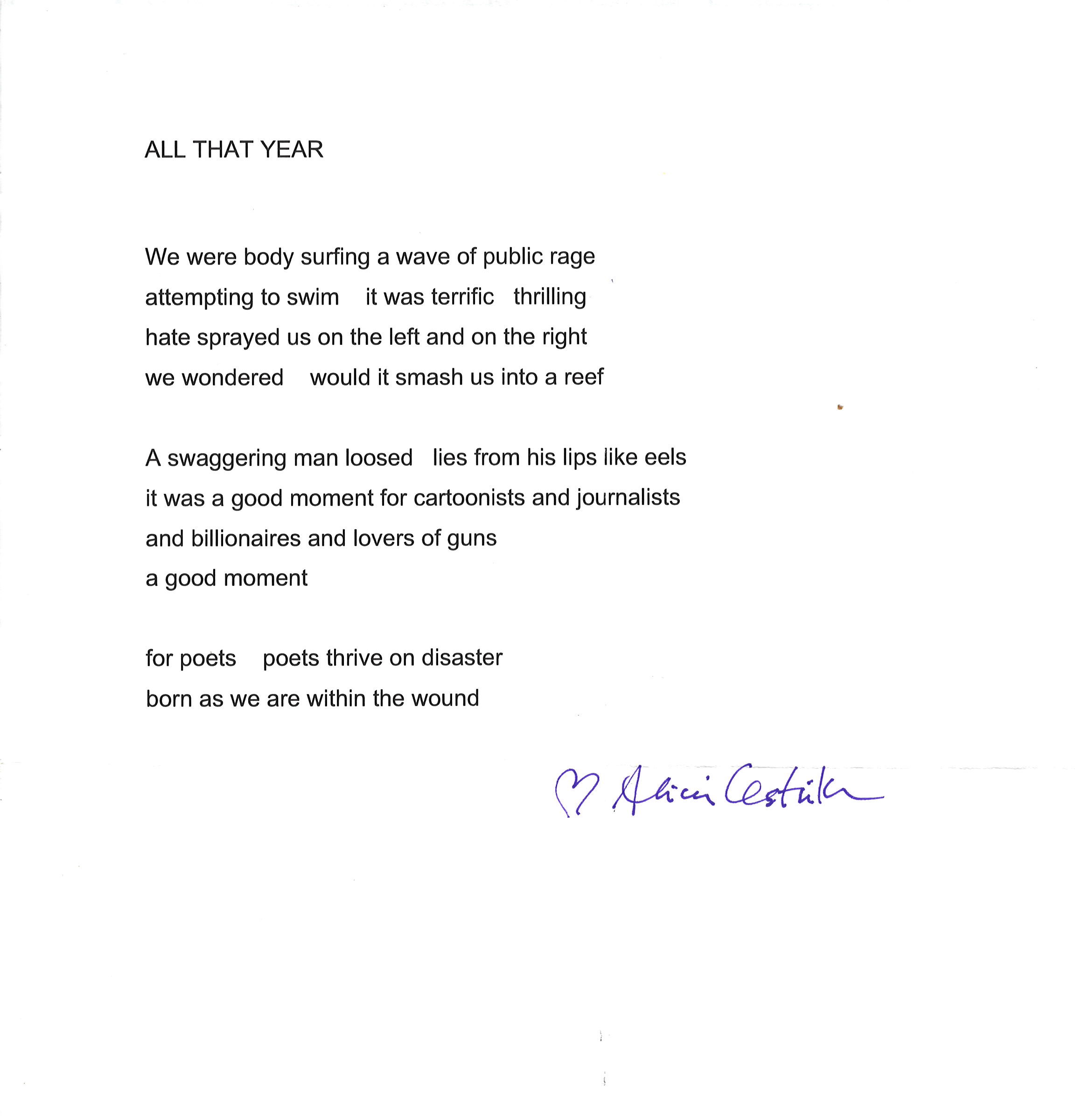 © 2023 Don Yorty. All rights reserved.
© 2023 Don Yorty. All rights reserved.
…
When Alicia Ostriker sent me a poem called “All That Year,” I asked if I could record her reading it, and she said, “Yes.” After we’d finished, I noticed that one line had changed. In the fifth line of the poem she’d sent, the line read:
…..A swaggering man loosed lies from his lips like eels.
In the poem she read, the line had become:
…..Our swaggering leader spilled lies from his lips like eels
I always find it interesting when poets change their poems so I took a closer look. First, I saw man, a general word, had been replaced by leader, which is more specific, and begins with the letter L adding to the L alliteration in the line: lies, lips, eels. I’m not sure if man adds much of anything in the way of sound or harmony; I’m led to think that its replacement with leader was a good thing.
Second, I saw the verb spilled replaced the verb loosed. Spilled adds to the S sound in the line with the endings of lies, lips, and eels. And spilled has the L sound as well so none of the L and S alliteration are subtracted when loosed is replaced by spilled.
Third, and a little bit of a non sequitur here, when readers read a word like eels, one might see an ugly eel, even horrifying, while another might see a shimmering, iridescent one, and yet some hungry reader might see and smell an eel fixed for dinner on a plate, sautéed and delicious. Ah, the poem and its words that conjure many things from fright to ecstasy.
Horace said that it took him about eight years to finish a poem. Some have taken me twenty. One thing I like about having this blog is that I can change any word whenever I want. It isn’t set in stone like a poem on the page in a published book where nothing changes, typos and all. As long as the poet lives, so does the poem. After the poet’s death, the poem is finished; that’s when it’s set in stone.
In the Vimeo below, Alicia Ostriker, reads “All That Year.” The poem lives. Enjoy.

 Alicia Ostriker. Photo by J.P. Ostriker
Alicia Ostriker. Photo by J.P. Ostriker
 Alicia Ostriker. Photo by J.P. Ostriker
Alicia Ostriker. Photo by J.P. Ostriker

